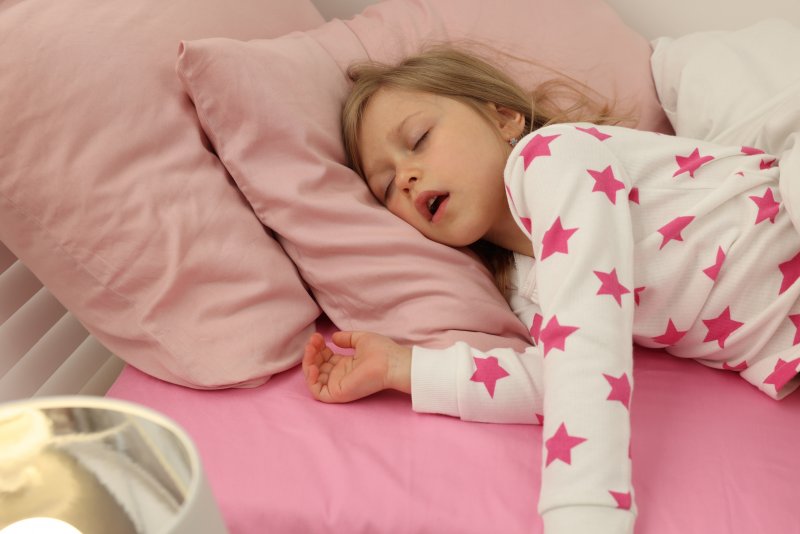
Watching your child sleep in their bed can be one of the sweetest moments of your entire day. While taking in how peaceful they look, you suddenly jolt because of the loud snore they let out or the heavy mouth breathing they experience. If this catches you off guard, you’re not alone. Many parents are unsure what is “normal” and what is worrisome enough to seek the help of a trusted professional. Keep reading to discover what symptoms to look for that might indicate sleep apnea and when you should see a sleep expert for additional insight.
Are Children Prone to Developing Sleep Apnea?
Researchers have found that between 7 and 11 percent of children have some form of sleep breathing disorder (i.e., snoring, obstructive sleep apnea, etc.). Those who have OSA tend to fall between 1 and 6 percent; however, the symptoms associated with sleep apnea – no matter which type – often affect nearly 95 percent of all children.
While it is more commonly found among adults, children are not immune to developing a serious sleep breathing disorder. This is why seeing an expert can put your child on the right path to better breathing, speaking, and enjoying all types of food.
What Symptoms Exist Among Children with Sleep Apnea?
If you notice that your child is experiencing any of the following while they are asleep, do not hesitate to reach out to your dentist’s office for help:
- Bedwetting
- Night terrors
- Mouth breathing
- Ceased/paused breathing
- Cough or choking while trying to sleep
- Loud snoring
It’s also possible they may develop signs that relate to their daytime experience. These can include:
- Difficulty waking up each morning
- Chronic fatigue
- Falling asleep while at school
Which Treatment Options Are Most Useful?
Treating children who have sleep apnea requires a formal sleep study that allows a doctor to analyze the data before providing a diagnosis. If your child does have this problem, there are a few options for treatment based on severity, preference, and budget. They include:
- Lifestyle changes: If your child is overweight or obese, you will want to make sure they are eating a healthy diet and getting plenty of exercise.
- CPAP therapy: This requires your child to wear a mask that covers the nose and mouth and pushes air through a tube and into their airway so that it remains open.
- Oral appliance: A customized oral appliance, similar to a mouthguard, can be crafted for them to wear while asleep. This will push their jaw forward slightly and prevent the airway from becoming obstructed.
While children can develop sleep apnea and experience persistent fatigue, the only way to know for sure is by taking them in to see a sleep expert. Doing so will ensure you get the necessary answers so that proper treatment and better breathing (and rest) are achieved.
About the Author
Dr. Khushboo Gandhi is a trusted dentist in Murphy who has more than a decade of experience working in dentistry and is here to help patients suffering from sleep apnea. With years of advanced training and clinical experience, Dr. Gandhi will customize a unique treatment plan for your child so that they begin to develop better sleep patterns and improved quality of life. If you notice your child is breathing through their mouth or begins to choke when waking up throughout the night, visit our website or call (972) 532-6506 to learn more.
